Are you overwhelmed by the variety of non-woven sheet masks available? From cotton to biocellulose, the material of your sheet mask significantly impacts its effectiveness. Choosing the wrong one can mean wasted money and, most importantly, less-than-stellar results. This comprehensive guide, brought to you by the experts at Favourite Fab, will help you navigate the world of non-woven sheet mask materials. We’ll break down the pros and cons of each type, helping you find the perfect match for your unique skin concerns. Your skin deserves the best!
Understanding Non-Woven Fabrics: The Foundation of Your Sheet Mask
Before diving into specific materials, let’s understand what “non-woven” actually means. Unlike traditional woven fabrics (like your cotton t-shirt), non-woven fabrics are created by bonding fibers together through mechanical, thermal, or chemical processes. This process makes them perfect for single-use applications like sheet masks, as they efficiently hold and deliver skincare ingredients.

Get Free Sample Kit Of Our Fabric At Your Door Step
- Online Order
- Door Delivery
- 1-Click Quotation
Decoding the Different Types of Non-Woven Sheet Mask Materials
1. Cotton Non-Woven Sheet Masks: The Classic Choice
Cotton non-woven sheet masks are the most common and often the most affordable option. They are soft, comfortable, and readily available.
Pros: Affordable, widely available, comfortable, suitable for most skin types.
Cons: May not adhere as well as other materials, can dry out quickly, may not be as effective at deep ingredient delivery.
Best for: Normal to combination skin, budget-conscious users.
2. Biocellulose Non-Woven Sheet Masks: The Luxury Upgrade
Biocellulose non-woven sheet masks are made from natural fibers produced by microorganisms. They adhere to the skin like a second skin.
Pros: Superior adhesion, excellent ingredient delivery, intensely hydrating, cooling, and soothing.
Cons: More expensive than cotton.
Best for: All skin types, especially dry, dehydrated, or mature skin. Perfect for anti-aging treatments.
3. Hydrogel Non-Woven Sheet Masks: The Hydration Powerhouse
Hydrogel non-woven sheet masks are made from a gel-like material packed with hydrating ingredients.
Pros: Intensely hydrating, cooling and soothing, excellent adhesion.
Cons: Fragile, prone to tearing, more expensive.
Best for: Dry, dehydrated, or sensitive skin.
4. Microfiber Non-Woven Sheet Masks: The Softness Champion
Microfiber non-woven sheet masks are made from ultra-fine synthetic fibers, offering a super soft and comfortable feel.
Pros: Very soft and comfortable, good adhesion, effective ingredient delivery.
Cons: May not be as environmentally friendly.
Best for: All skin types, especially sensitive skin.
5. Tencel Non-Woven Sheet Masks: The Eco-Friendly Option
Tencel non-woven sheet masks are made from sustainably sourced wood pulp. They are soft, breathable, and biodegradable.
Pros: Eco-friendly, soft, comfortable, good absorption, breathable.
Cons: Slightly more expensive than cotton.
Best for: All skin types, especially those concerned about sustainability.
Choosing the Right Sheet Mask for Your Skin Concern
- Dry Skin: Hydrogel or biocellulose masks infused with hyaluronic acid for intense hydration.
- Oily Skin: Cotton masks with oil-controlling ingredients like green tea.
- Sensitive Skin: Microfiber or Tencel masks with soothing ingredients like aloe vera.
- Acne-Prone Skin: Lightweight masks with acne-fighting ingredients like salicylic acid or tea tree oil.
- Wrinkles & Fine Lines: Biocellulose masks with collagen or vitamin C for anti-aging benefits.
- Dull Skin: Brightening masks infused with vitamin C or niacinamide.
How to Use a Non-Woven Sheet Mask Correctly
- Cleanse: Start with a clean face, removing all makeup and impurities.
- Tone (Optional): Apply toner to balance your skin’s pH.
- Apply the Mask: Unfold the mask carefully and smooth it onto your face.
- Relax: Leave the mask on for 15-20 minutes.
- Remove and Massage: Gently remove the mask and massage the remaining serum into your skin. Do not rinse!
- Follow Up: Continue with your skincare routine (serum, moisturizer, SPF in the morning).
Where to Buy Non-Woven Sheet Masks Online
You can find a wide variety of non-woven sheet masks at drugstores, beauty stores, and online marketplaces like Amazon. Favourite Fab also offers a curated selection of high-quality sheet masks.
Are Non-Woven Sheet Masks Good for Your Skin?
Yes! When chosen correctly for your skin type, non-woven sheet masks provide a concentrated dose of beneficial ingredients, leaving your skin hydrated, refreshed, and glowing.
DIY Non-Woven Sheet Mask Recipe (For Informational Purposes)
Ingredients:
- Plain, unbleached cotton rounds or thin non-woven fabric
- Your favorite serum or a natural mix (honey, aloe vera, green tea)
Instructions:
- Soak the cotton rounds or fabric in your serum or natural mix.
- Apply to your face and leave on for 15-20 minutes.
- Remove and massage any remaining liquid into your skin.
[Your Brand] vs. [Competitor Brand] Sheet Masks
Let’s compare Favourite Fab’s non-woven sheet masks to a popular competitor, The Face Shop:
- The Face Shop: Affordable, primarily cotton-based options.
- Favourite Fab: Premium selection, including biocellulose and hydrogel for superior results.
While The Face Shop offers a good starting point, Favourite Fab provides a more targeted and luxurious experience with high-quality materials beyond just cotton.
Related Keywords and Content
- Non-Woven Sheet Mask Price: Prices vary based on material, brand, and ingredients. Cotton masks are the most affordable, while biocellulose and hydrogel are premium options.
- Non-Woven Sheet Mask on Amazon: A vast selection is available. Read reviews carefully and check ingredient lists before purchasing.

Get Free Sample Kit Of Our Fabric At Your Door Step
- Online Order
- Door Delivery
- 1-Click Quotation
Frequently Asked Questions (FAQ)
Is non-woven fabric good for face masks?
Yes, non-woven fabric is excellent for face masks. It is breathable, absorbent, and effective at holding skincare ingredients.
What is the best material for sheet masks?
Biocellulose and hydrogel are best for hydration and ingredient delivery, while cotton and microfiber are good for general use.
What is the difference between woven and non-woven face masks?
Woven fabrics interlace threads, while non-woven fabrics bond fibers together, making them more absorbent and suitable for sheet masks.
What is the best fabric for face masks?
Non-woven fabrics are ideal for sheet masks, with material choice depending on skin needs.
Contact Us
Ready to experience the Favourite Fab difference? We’re here to help you find the perfect non-woven facial sheet mask for your skin!
Email: sale@favouritehub.com
WhatsApp: 9528811566
We offer personalized recommendations based on your skin type and concerns. Choose Favourite Fab for a truly radiant and healthy complexion!




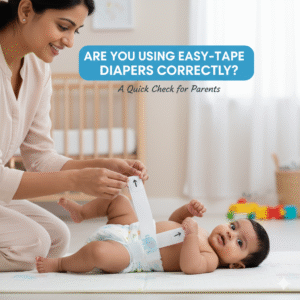
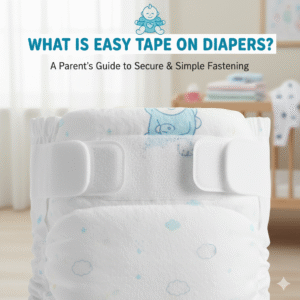
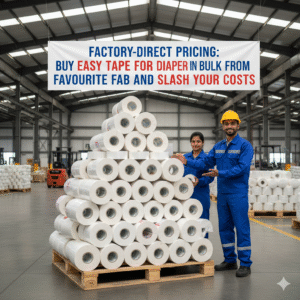

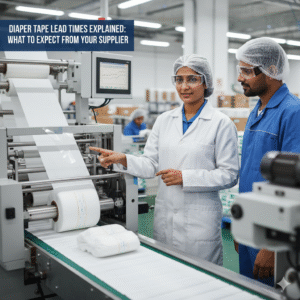
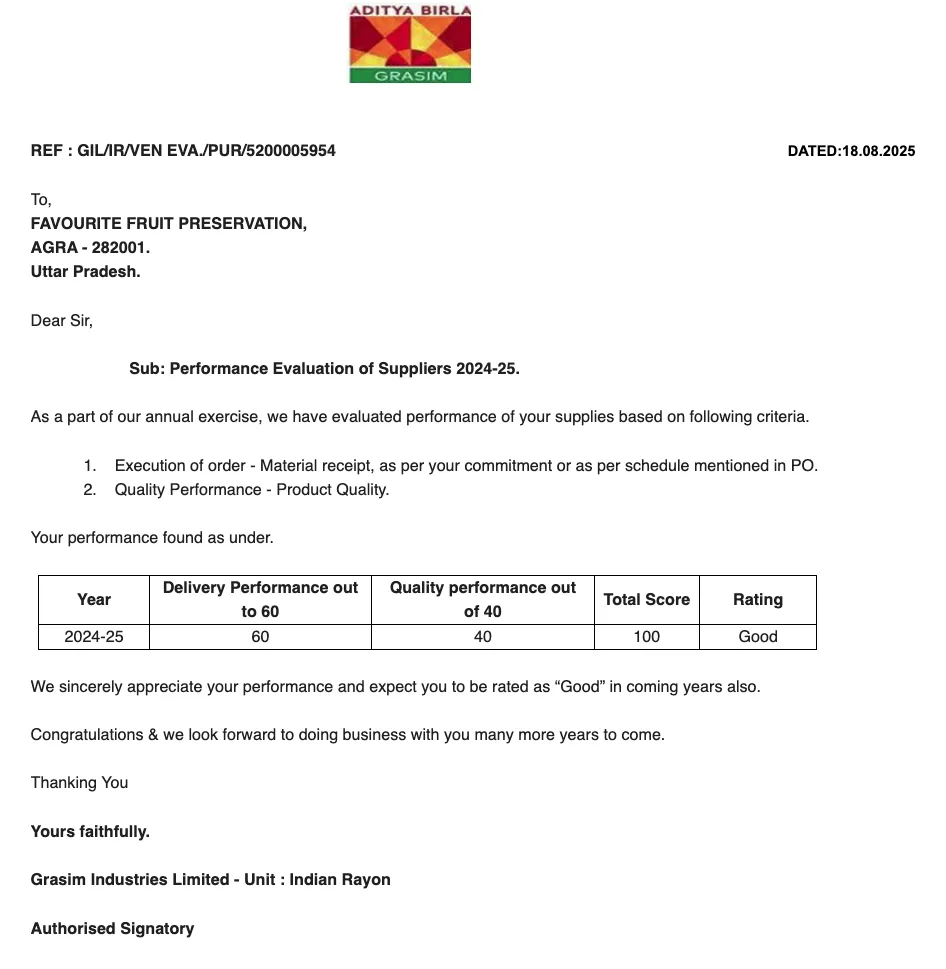




























We Do Business On Trust.Our Nonwoven fabric Business is Built on trust. Trust starts with Transparency.
Mr.Ramniwas Garg Founder Of Favourite Group